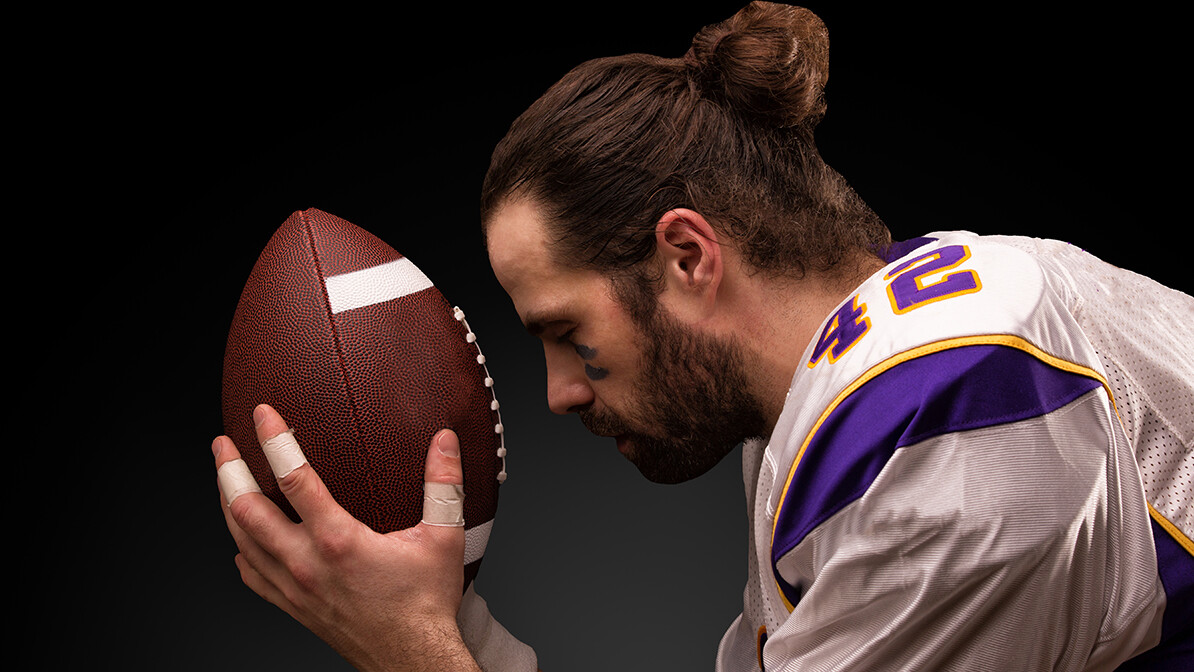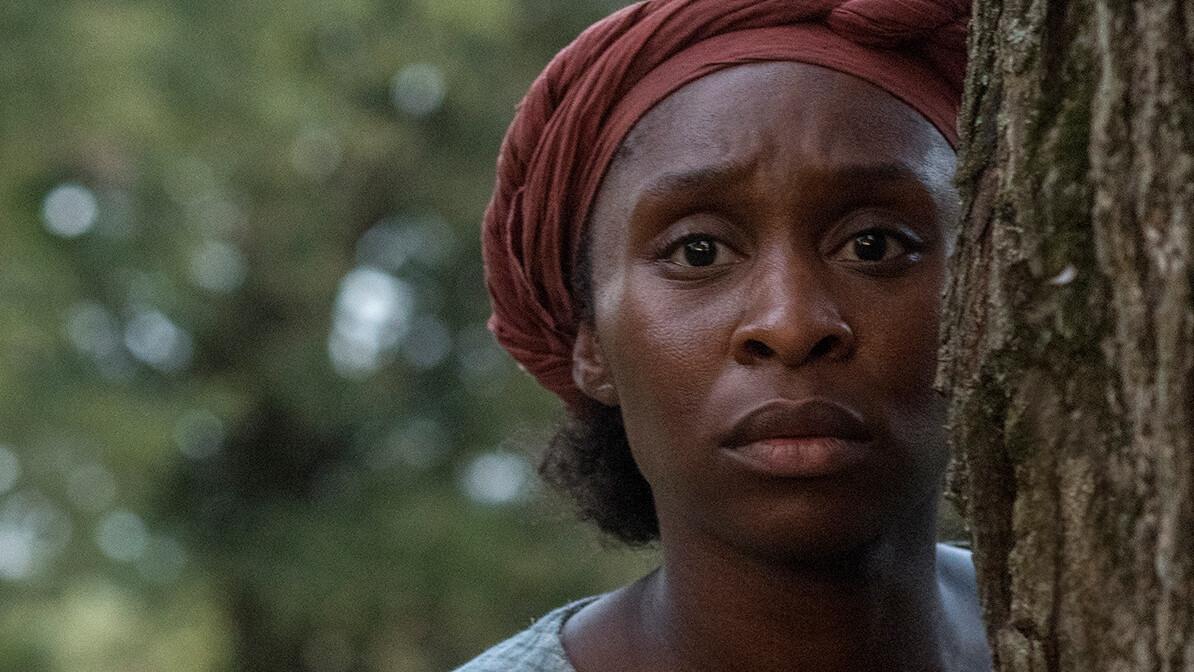- Home
- Entertainment
- Evan Koons and Finding Unity in Camp Manna (Part 2)
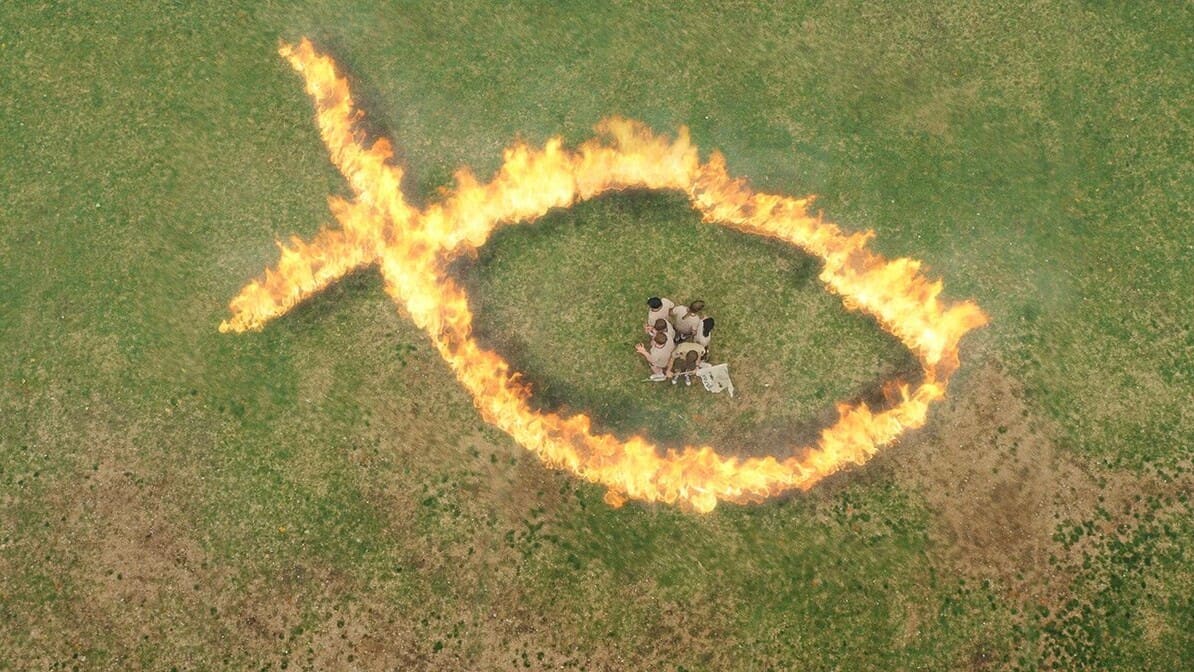
Evan Koons and Finding Unity in Camp Manna (Part 2)
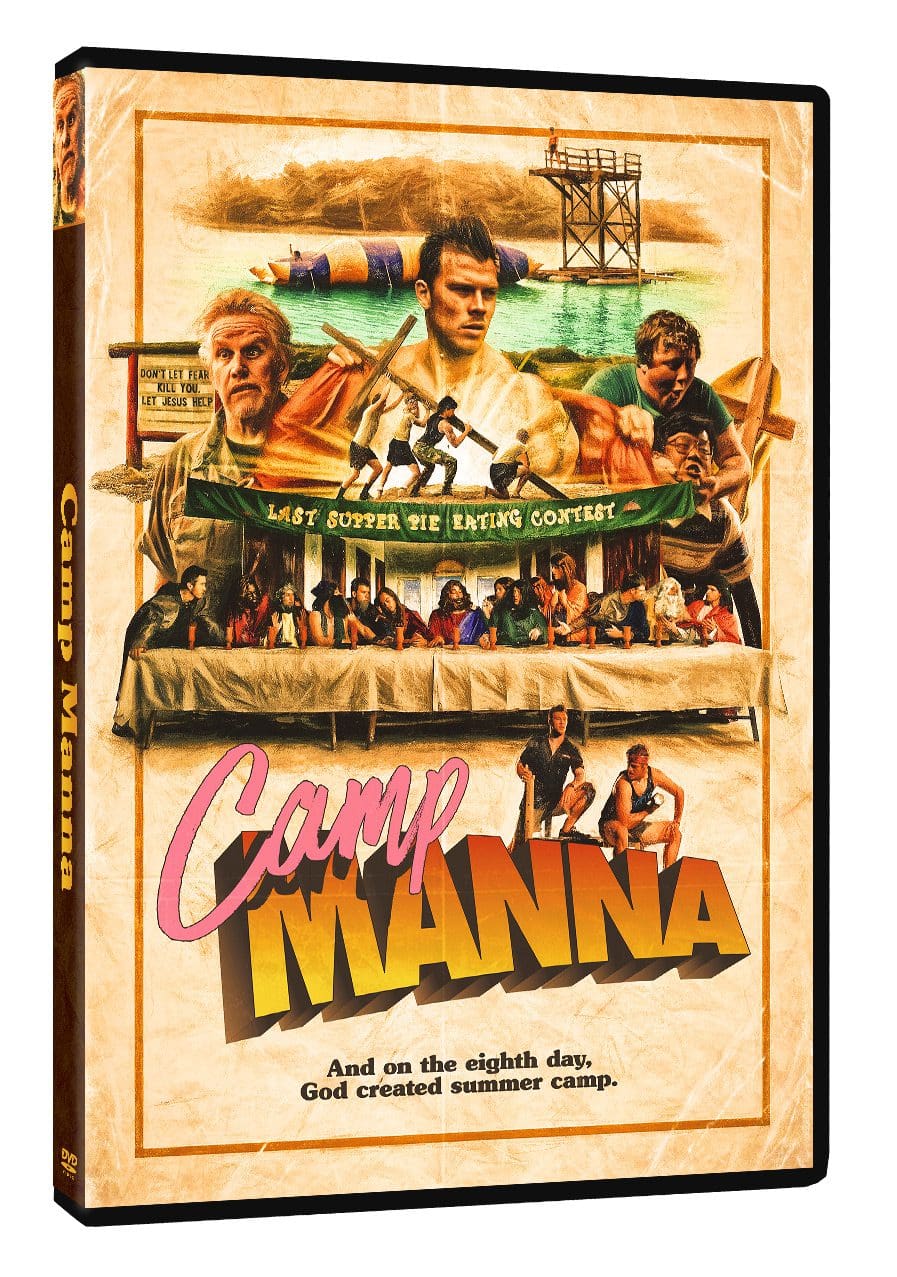 John Farrell: Could you go into a little bit more about what drove your character, Bradley Sommers, in Camp Manna?
John Farrell: Could you go into a little bit more about what drove your character, Bradley Sommers, in Camp Manna?
Evan Koons: I think growing up Christian and still being a Christian, I always felt like there was this desire, this hierarchy of callings. The highest calling you could be was some sort of pastor or youth pastor or a thought leader in the Christian world. And I’d be lying if I said I never tried to achieve that or that wasn’t a goal. Like if you want power and you want privilege within sort of the kingdom of God, become one of those people. That’s sort of the highest thing you can aspire to.
That’s not what I was called to be as a real person. I think tapping into that with Bradley … Bradley so badly wants to be this leader for Christ. And a leader for Christ can look like so many other things than just being the guy who saves people’s souls because ultimately that’s not what we do anyway. We make a space where people’s souls can be saved by God. That is our maybe calling.
So, really tapping into that and then turning it to super dweeb. On that level, I’m like, “I’m going to try. I’m going to be really earnest and really try to care about people as a character and really want their salvation, but I also have my own motives.” For the character, my motives were “I want to win the God games. I want to get my stuff at school. I want to save this kid’s soul.” I think that speaks to a lot of how we do operate. I think that’s, in a way, telling the truth. A lot of times we think we’re doing things for the right reasons, but if we really looked at it, maybe we’re not a lot of times. So, that’s kind of how I was playing that character, but comedically or just turning it up to 11.
JF: How was that character similar to you as a person?
Evan: I think a lot of times I’m trying to be somebody I’m not. I want to be the better version of myself, but maybe the better version of myself is me in my weakness and me being malleable and open to what God is putting in front of me rather than trying to make righteous what I think God should put in front of me. I think I do that all the time and that’s like the story of my life. Like just get out of my way and know that whatever God has in front of me is what He’s called me to do. Whatever it is. Whether it’s a dog that has chewed up my couch cushions or it’s a feature film. If that’s what’s in front of me, that’s where I’m at and that’s what we have to do.
When Life and Art Collide
JF: How did you get attached to the project and what about the story was attractive to you?
Evan: The Erics had been working on this movie since 2006. Ever since I’ve known them they’ve been working on it. We’ve done several projects together. We came up with the “Church Appropriate Dance Moves” and that character. If you haven’t seen that, that was the church countdown. That was something that we all were involved with together. Same with “For the Life of the World,” which was a seven-part series that we made with another organization that became a small-group study. I was actually hired on that to be a writer and when we wrote it, they were like, “Who can we get to play this? Who do we know who’s comfortable in front of a camera, and is around with that much time to do this? Someone who we don’t have to pay gobs of money to stop their life and do that?” Then they were like, “Evan, you’re familiar with this. You’ve been learning along the way. Why don’t you do it?” All of these projects have sort of been us, as a community, growing together.
When it was time for this movie to get made or when we felt like we could try to push this, I said, “Let me come on as a producer and help you guys out and be a part of this. I’d love to. It just seems to work with all the stuff we’re doing.” And they said, “Yeah, sure.”
As they were casting for the role, there were some extremely funny people from “Saturday Night Live,” from all over the place, but they didn’t have the faith background that knew when to stop pushing the envelope. So, they came back to me and said, “Evan, we can’t find somebody who knows the audience. You know the audience. We’ve done this together. We’re comfortable with each other. Would you be interested in the role? We think this might be a good idea.”
I was happy to be thought of, but I was like, “I don’t know. I’m not the true face that I think this person needs.” Over time it sort of grew on me and we were like, “Yeah, let’s do this.”
I also didn’t want to be the guy who’s the producer of the movie and also in the movie and people think, “He just bought his role basically.” I didn’t want to be thought of that way. But then I was like, “I don’t care what people think. People can think whatever they want to think.” Then I thought, “Yeah, let’s do this.” So, we moved forward.
That’s how I became involved. I always thought every verse in the script was great and fun. I knew the guys making it and I loved that family that we had grown to be a part of. I just trusted them in what they were trying to do and what they wanted to do and trusted their stories. So, that’s really why I became involved in it. We’re a good team.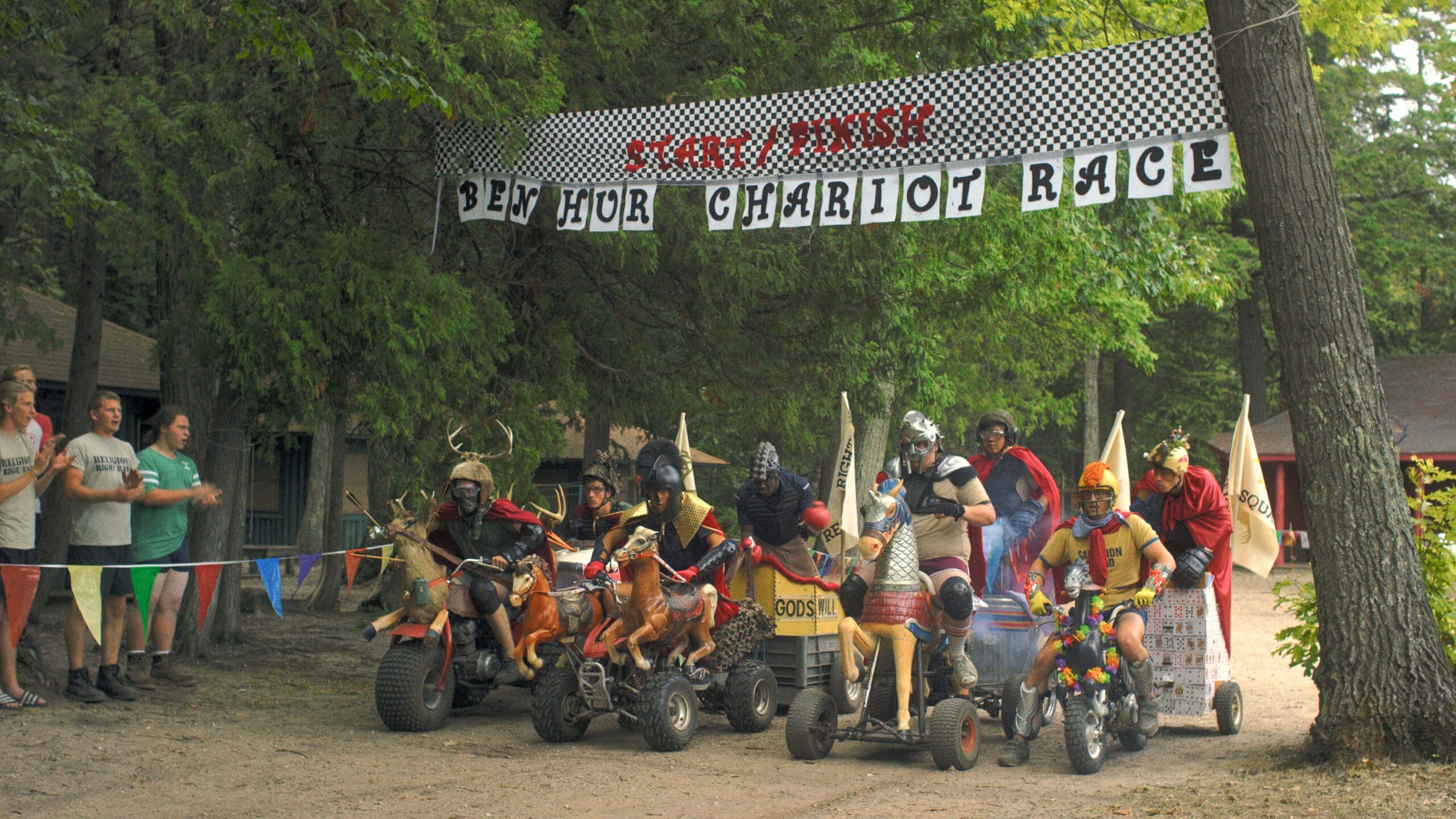
JF: The cast obviously had a nice blend of veteran actors and young actors. What was it like on set during shoots? I can imagine it being almost a laugh a minute.
Evan: Oh, it was definitely wild. A lot of improv, lots of running around, and goofing off. Most everybody lived at the camp. I’m not an outdoorsy guy. I chose not to live at the camp. I went out of my way to find ways not to live onsite. I just didn’t want to take showers outside. I didn’t want to work a 12-hour day and then go, “Hey, let’s go sleep in a bunk bed.” That wasn’t my thing. So, I diva’d out a little bit on that, but most everybody stayed on set.
It was always fun with them playing basketball between setups and going around and having all kinds of antics. Jimmy Tatro was great. He was a lot of fun and brought another level of comic relief and expertise that people really loved. And Gary was always a wildcard and brought a lot of energy to the set whenever he was there.
JF: When and where can people watch and find out more information about your movie Camp Manna?
Evan: You can go to campmannathemovie.com. We’re available on iTunes, GooglePlay, Vudu, and all the places online. We’re also available on DVD through Ocean Way. To learn more we’re on Facebook and Instagram at campmannathemovie.
Comedy and Faith
JF: Obviously you work a lot in comedy. How is comedy important to faith?
Evan: If the gospel isn’t funny, I don’t know what is. There’s God, in whom all things hold together and all things have their being, who spoke our existence, right? There’s Him in three parts. There’s this Holy Trinity that has made everything there is and has made us and then decided to come down and become one of us to save us. To me it’s the most comedic thing. It’s unthinkable that that person would do that. I think that is first and foremost the comedy.
I think the unexpected and the inconvenience, and the wild and zany are most of the stories of the Bible. And if you’re not trained to see that, if you don’t see the humor in that, you’re missing ways in which God works, I think. And those ironic and paradoxical and silly ways when He’ll make a donkey talk or He’ll walk on water or He’ll have a barren woman time after time after time give birth to a child. Like what? This is crazy. So, I think comedy is absolutely part of the gospel.
There’s a book by Frederick Buechner called Telling the Truth: The Gospel as Tragedy, Comedy, and Fairy Tale. It’s all three of those things all the time. Learning to see the gospel in a way with new eyes, I think we learned to humble ourselves, which I think is the essence of what the spiritual life is; it’s humility and failure. And comedy gives us a lens in which we can look at ourselves and fail and laugh.
…
Learn more at campmannathemovie.com
Trending Now
Sign up today for your Inspiration Today Daily Newsletter
Supercharge your faith and ignite your spirit. Find hope in God’s word. Receive your Inspiration Today newsletter now!
John Farrell
John Farrell serves as the Digital Content Manager at Inspiration Ministries, where he oversees the planning, organization, and management of website content to support the ministry's global digital outreach. With a strong background in writing and editorial strategy, John ensures that the articles, devotionals, and discipleship resources on Inspiration.org are accurate, engaging, and aligned with the ministry's mission.
John has authored more than 1,000 articles, press releases, and features for Inspiration Ministries, NASCAR, Lionel, and Speed Digital. His versatility as a writer is also showcased in his 2012 book, The Official NASCAR Trivia Book: With 1,001 Facts and Questions to Test Your Racing Knowledge.
A graduate of Appalachian State University, John brings excellence and attention to detail to the digital experience at Inspiration Ministries. He lives in Concord, N.C., with his wife and two sons.
Related Articles
March 10, 2025
Finding Total Victory on the Road to Championship
I have been playing competitive golf for 55 years. Through the various stages of my life, my…
March 7, 2025
Average Joe Movie: SCOTUS, Praying Football Coach Backstory
When Coach Joe Kennedy knelt to pray at the 50-yard line after a high school football game, he had…
February 28, 2025
The Power of Story: A Muslim Journey to Hope
Storytelling is one of the oldest and most powerful ways to touch the human heart. Parents tell…
February 27, 2025
‘Harriet’ Movie: Courage, Freedom, Faith
Antebellum abolitionist Harriet Tubman had convictions and courage that helped free herself…
Next Steps To Strengthen Your Walk
Inspiration Today Newsletter
Supercharge your faith and ignite your spirit. Find hope in God’s word. Receive your Inspiration Today newsletter now!
Christian Articles
Find articles to strengthen your walk and grow your faith. We have a wide range of topics and authors for you.
Submit A Prayer Request
We are here for you. Simply click on the button below to reach us by form, email or phone. Together we will lift our hearts and voices with you in prayer.



